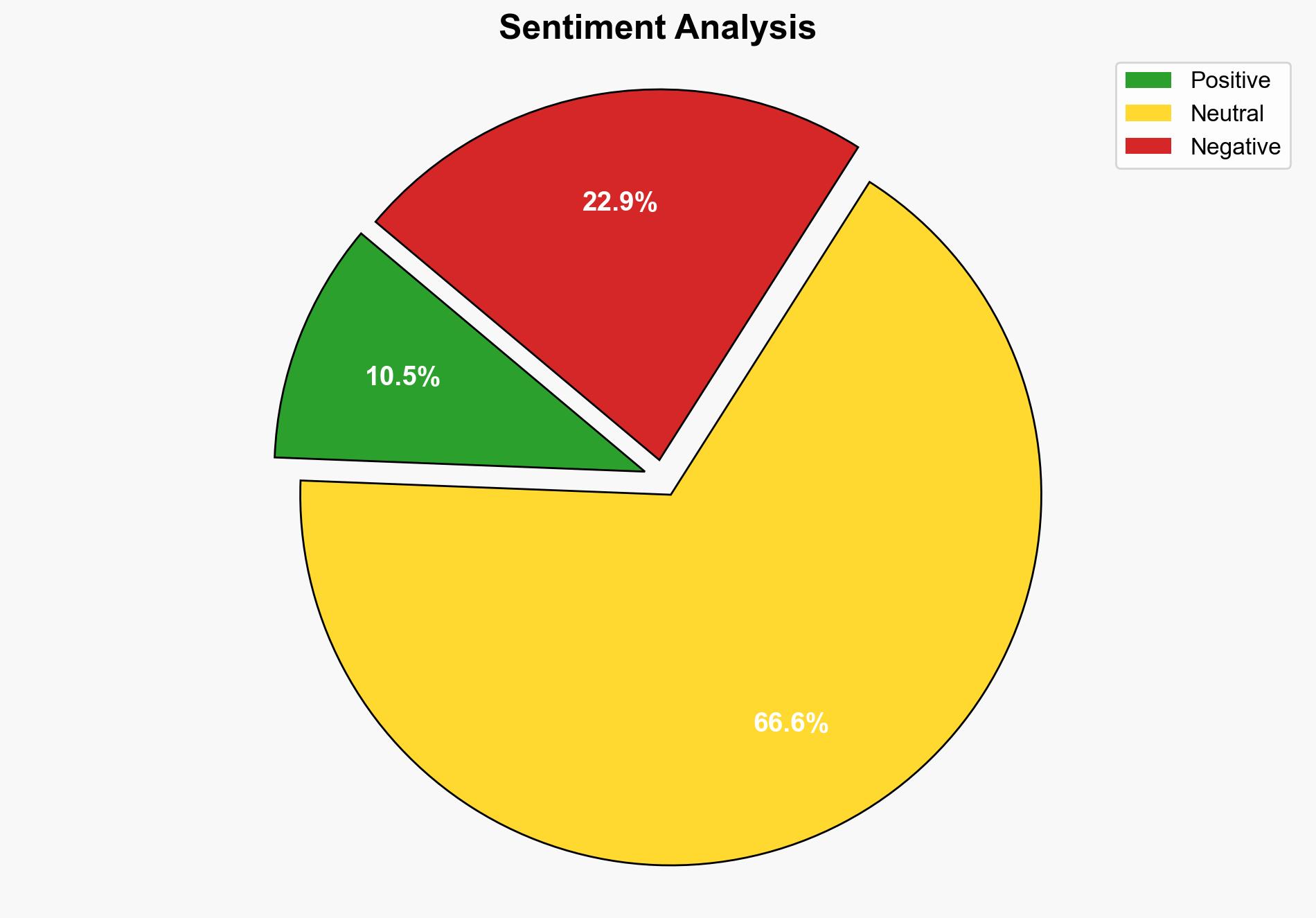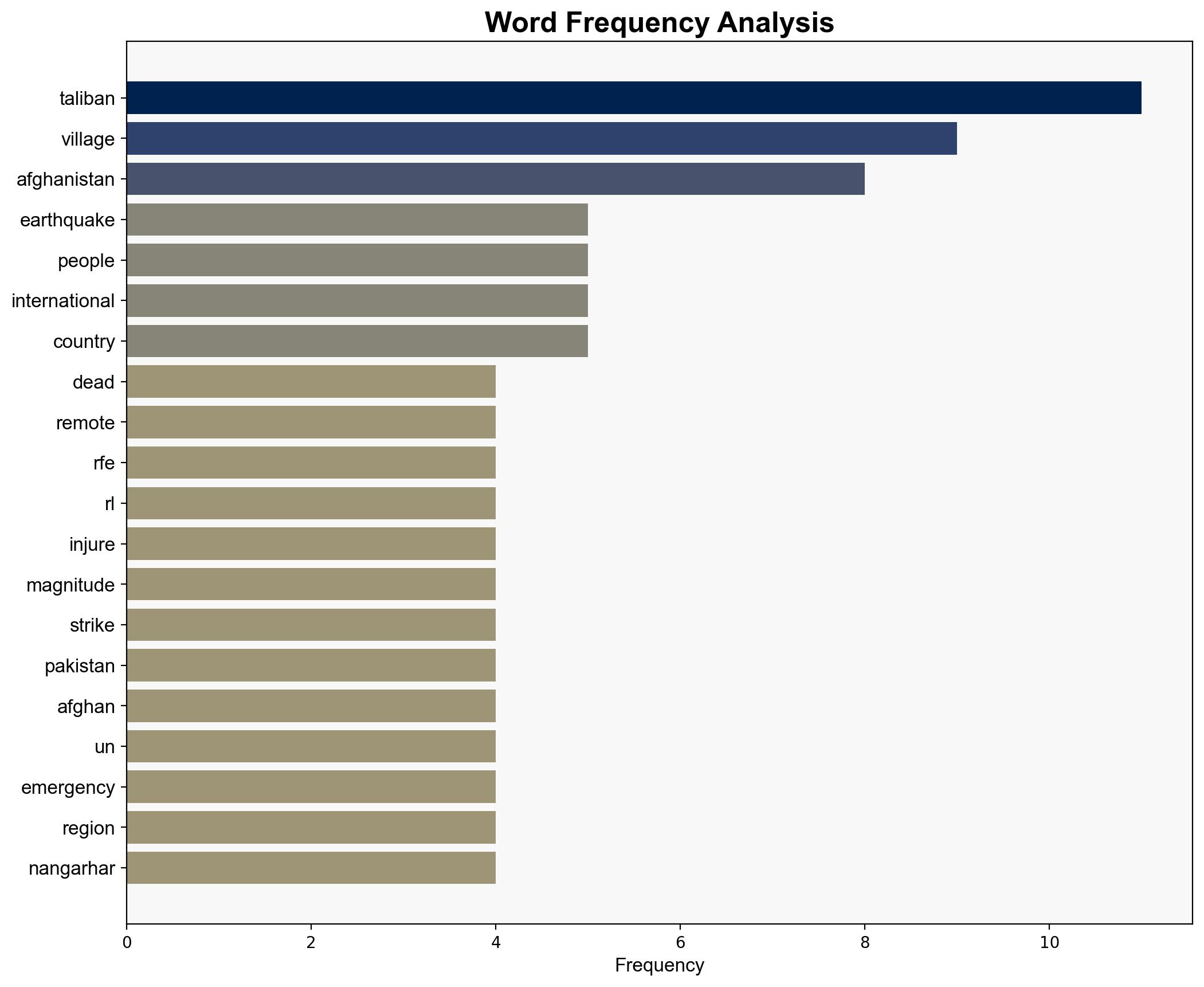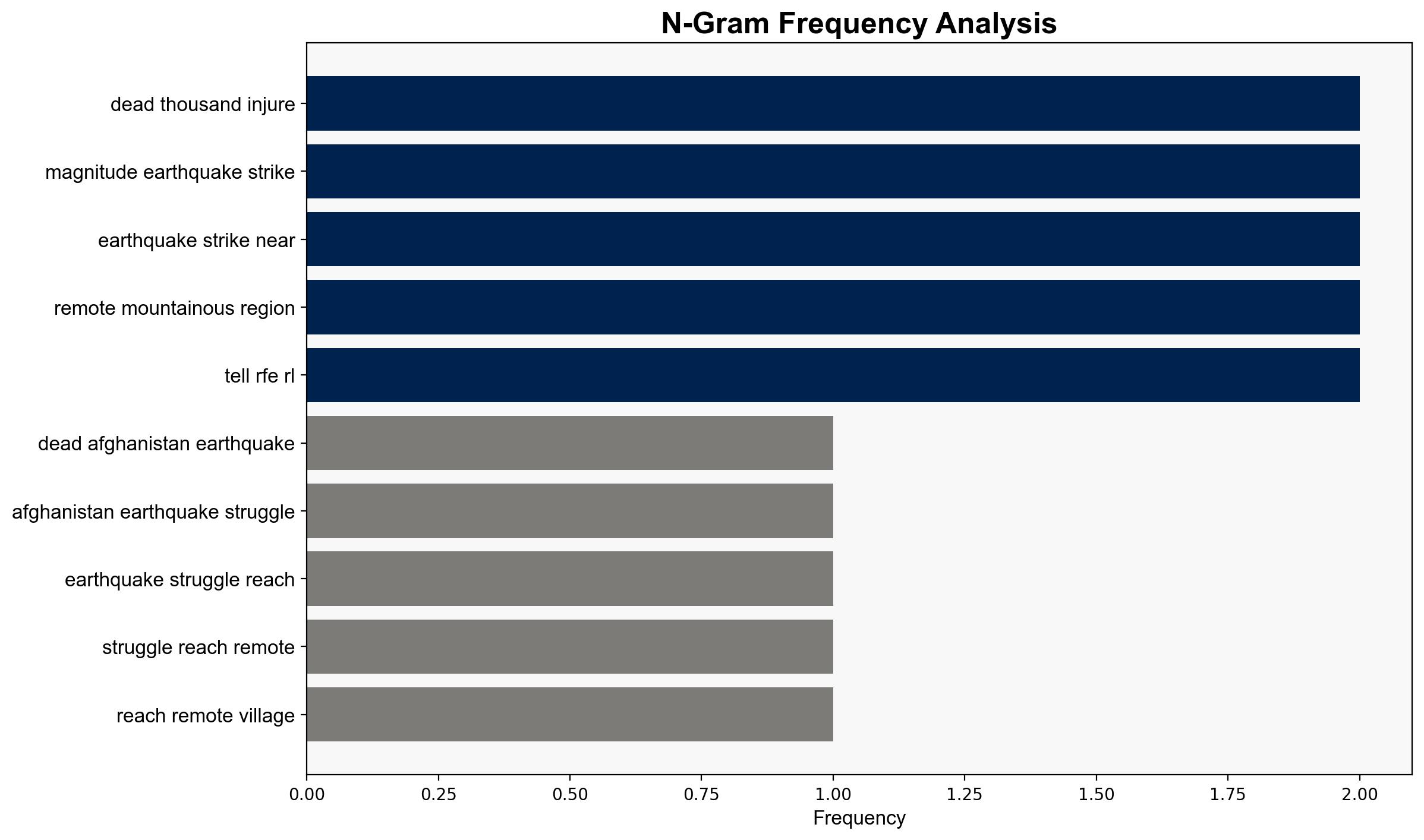More Than 1400 Dead In Afghanistan Earthquake As Aid Struggles To Reach Remote Villages – Globalsecurity.org
Published on: 2025-09-03
Intelligence Report: More Than 1400 Dead In Afghanistan Earthquake As Aid Struggles To Reach Remote Villages – Globalsecurity.org
1. BLUF (Bottom Line Up Front)
The most supported hypothesis is that Taliban-imposed restrictions and logistical challenges significantly hinder humanitarian aid efforts in Afghanistan following the earthquake. This is based on evidence of restrictive policies and difficult terrain. Confidence level is moderate due to limited access to independent verification. Recommended action includes diplomatic engagement with Taliban authorities to facilitate aid delivery and international coordination to overcome logistical barriers.
2. Competing Hypotheses
1. **Hypothesis A**: Taliban restrictions and logistical challenges are the primary barriers to effective humanitarian aid delivery in Afghanistan.
– **Supporting Evidence**: Reports of Taliban restrictions on aid operations, difficult terrain, and the ban on Afghan women working with NGOs.
2. **Hypothesis B**: The primary barrier to aid delivery is the lack of international resources and coordination, rather than Taliban restrictions.
– **Supporting Evidence**: Reports of international cutbacks in aid following the Taliban’s return to power and the complex geopolitical situation.
Using ACH 2.0, Hypothesis A is better supported due to direct evidence of Taliban policies impacting aid operations, whereas Hypothesis B lacks specific evidence of resource inadequacy as the primary issue.
3. Key Assumptions and Red Flags
– **Assumptions**:
– Taliban restrictions are uniformly enforced across affected regions.
– International aid agencies have sufficient resources but face operational barriers.
– **Red Flags**:
– Inconsistent data on the actual number of casualties and injured.
– Potential bias in reporting from sources with political agendas.
4. Implications and Strategic Risks
– **Cascading Threats**: Prolonged aid delays could exacerbate humanitarian crises, leading to increased displacement and regional instability.
– **Geopolitical Risks**: Strained relations between Afghanistan and neighboring countries, particularly Pakistan, could worsen due to refugee repatriation issues.
– **Psychological Impact**: Continued suffering and lack of aid may fuel anti-Taliban sentiment and potential unrest.
5. Recommendations and Outlook
- Engage diplomatically with Taliban authorities to negotiate aid access and lift restrictions.
- Enhance international coordination to streamline aid delivery, focusing on logistical solutions for remote areas.
- Scenario Projections:
– **Best Case**: Successful negotiations lead to improved aid flow and reduced casualties.
– **Worst Case**: Continued restrictions and logistical failures lead to a humanitarian catastrophe.
– **Most Likely**: Partial improvement in aid delivery with ongoing challenges due to terrain and political factors.
6. Key Individuals and Entities
– Zabihullah Mujahid
– Sediqullah
– Antonio Guterres
– Salam Al Janabi
7. Thematic Tags
national security threats, humanitarian crisis, regional focus, geopolitical dynamics





